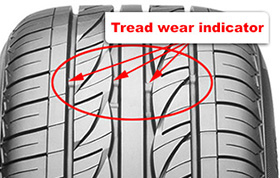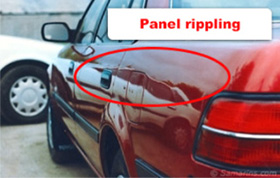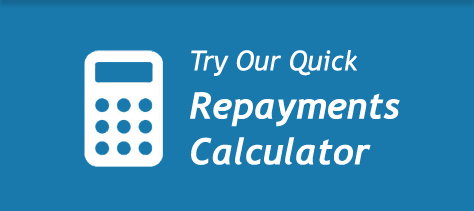Buying a vehicle whether it’s brand new or pre-owned is an exciting and rewarding experience, however if you are thinking of buying a pre-owned or used car, there are a few key tips that you should know when taking a car for a test drive.
When buying from a car dealership, there are certain standards that the car has to meet in order for the dealership to legally sell the car. The dealership is obligated to provide you with a Road Worthy Certificate for the vehicle. Which brings me to Tip 1.
Test Driving Tips for Purchasing a Used Car
Tip 1. Check that the car comes with a Road Worthy Certificate/Safety Certificate
If you are purchasing through a car dealership, it is compulsory for the vehicle to have a Road Worthy Certificate when being sold. However, if you are looking at a private sale used car, ask the seller whether the car comes with a Road Worthy Certificate as it is not mandatory for a vehicle to be sold with one.
Tip 2. Note the Vehicle Identification Number (VIN)
When you view the car, make sure you take down the Vehicle Identification Number (VIN) of the vehicle so that you can perform all necessary checks such as a Personal Property Security Register (PPSR) – more on this later.
A car’s VIN number is a 17 character number that essentially acts as the vehicle’s fingerprint, no two vehicle VIN numbers will ever be the same. To find the VIN, open the bonnet of the vehicle and it is usually located on the driver’s side towards the back of the engine bay. Alternatively, if it isn’t displayed in the engine bay, open the driver’s door and it may be located inside the door near the door latch.

Tip 3. Check the tyres on the car
The tyres are possibly the most important thing to check on the car prior to purchasing. You need to inspect each tyre individually, checking to make sure that they each have plenty of tread using the tread wear indicators as a guide. It is also important to check that the tyres have similar wear, if they don’t it could indicate that the steering alignment is out. Make sure that each tyre is the same size and preferably the same brand as this may be a road worthy item that you will need to address.
Tip 4. Check for leaking fluid
Make sure you check under the car for any fluid leaks, if you find any leaks, examine the liquid colour, texture, smell and position to establish when it is coming from.

Tip 5. Check for evidence of previous body repairs
Check all panels on the vehicle for dints, scratches, differences in colour and panels that don’t line up correctly. Line your eye up with the side of the vehicle and look straight along the side from both the front and rear of the vehicle, if you see any rippling this may indicate that the car has undergone previous body work or repairs. Be sure to check both sides of the car and ask the seller about any suspect areas.
Tip 6. Check all electrics, lights/doors/windows
Make sure all lights including front and rear indicators, headlights, tail lights, break lights and hazard lights are working. Check all doors open, close, line-up and lock/unlock correctly. Check that all windows whether electric or manual wind down and back up. Check that the horn works, this is something a lot of people forget, however it is also required for the vehicle to be Road Worthy.
Tip 7. Check for existing rust or water damage
Check for surface rust on all visible exterior panels, door edges, hinges in the boot and in the engine bay. Check the interior including carpets for signs of water damage.
Tip 8. Check the engine
Some of the most expensive complications you can experience with a vehicle are engine problems. Check all the fluid levels to make sure they are within the acceptable range prior to starting the car or taking it for a test drive.
Make sure you spend some time listening to the engine for any knocks, misfires, ticks or hisses. If you hear anything you’re not sure about, it may be worth contacting your mechanic or RACQ to perform a vehicle inspection to get a second opinion – it will be cheaper than replacing the engine.
Tip 9. Perform a Personal Property Security Register (PPSR) Search on the vehicle
A PPSR search provides information on a vehicle including any registered financial interest (money owing), whether the vehicle has ever been written off or stolen and gives consumers peace of mind when purchasing a vehicle.
To perform a PPSR search on a vehicle, you will need the vehicle’s VIN number and you can perform a search by visit the Personal Property Security Register Search website.
Tip 10. Take it for a Test Drive
Make sure you take the car for a test drive prior to committing to the purchase. At slow speed, check that the car doesn’t pull to either side and that the gearbox shifts are smooth. Check that the brakes are effective and don’t feel spongy or cause the vehicle to skew in either direction when applied.
Think about the type of driving you plan to do in the vehicle, if it is mostly highway driving, make sure you take it on the highway, check for vibrations or unusual noises.
Used Car Mechanical Breakdown Insurance
Here at Credit One we understand how important it is to have peace of mind when buying a used car. We are able to offer Mechanical Breakdown Insurance and Extended Warranties not just on new cars, but also on used cars and private sale vehicles.
What is Mechanical Breakdown Insurance?
Mechanical Breakdown Insurance covers original vehicle components against mechanical failure with emergency accommodation, towing and hire car options. It is your insurance against the cost of potential breakdown repairs and labour.
What does Mechanical Breakdown Insurance cover on my car?
Among other items, extended warranty coverage covers the following:
|
|
Credit One specialises in providing fully-protected finance and insurance packages for both individuals and businesses throughout Australia, tailored to suit your individual needs. Speak to one of our consultants today about how we can help you drive away today with affordable repayments and peace of mind for your vehicle.
Or Phone Us on 1300 CREDIT (1300 273 348) for an obligation-free quote
Tags: Test Driving A Used Car, Test Driving Tips, Credit One




